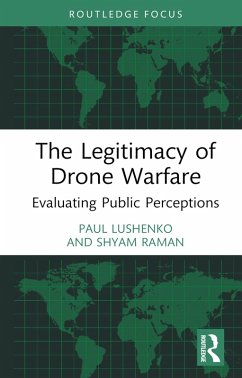
Proxy Wars from a Global Perspective (eBook, PDF)
Non-State Actors and Armed Conflicts
Redaktion: Bernat, Pawel; Kozera, Cyprian Aleksander; Gürer, Cüneyt
Versandkostenfrei!
Sofort per Download lieferbar
74,95 €
inkl. MwSt.
Weitere Ausgaben:

PAYBACK Punkte
37 °P sammeln!
Proxy warfare is a growing international phenomenon. Although states have used proxies in armed conflicts for centuries, evolving regional and global security architecture is now forcing states to radically change the way contemporary conflicts are fought. Based on ten case studies, this reassesses exactly how these changing global and systemic factors are shaping the ways in which states use non-state actors as proxies in their armed conflicts. Examining the use of proxy warfare worldwide, focusing on the last decade's conflicts, this volume brings together contributions from scholars of inte...
Proxy warfare is a growing international phenomenon. Although states have used proxies in armed conflicts for centuries, evolving regional and global security architecture is now forcing states to radically change the way contemporary conflicts are fought. Based on ten case studies, this reassesses exactly how these changing global and systemic factors are shaping the ways in which states use non-state actors as proxies in their armed conflicts. Examining the use of proxy warfare worldwide, focusing on the last decade's conflicts, this volume brings together contributions from scholars of international relations and global security studies in order to explore cases of armed conflict of particular regional and global significance. These include recent developments in the conflict in Israel and Palestine, the Central African Republic, Libya, Mali, Central Asia, Syria, Ukraine, Nagorno-Karabakh, Brazil and Yemen. By drawing on both theory and practise, it offers a re-evaluation of contemporary understanding of "outsourced warfare", with policy implications for how we understand and negotiate with states using proxy warfare in the future.












